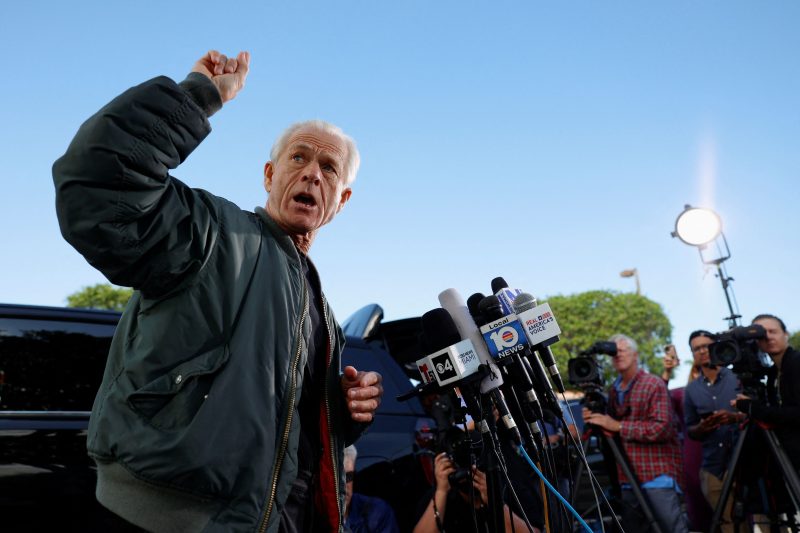
Appeals court sides with judge who threatened Peter Navarro with contempt
A federal appeals court has rejected another argument from former Trump adviser Peter Navarro, one of a series of recent legal losses that has the economist facing sanction for defying court orders even as he serves a four-month prison sentence for ignoring similar demands from Congress.
Navarro, who was convicted of contempt of Congress in September over his refusal to respond to a subpoena from lawmakers investigating the Jan. 6 attacks, has also been fighting to keep his White House records from the National Archives and Records Administration. In February, a judge threatened him with contempt of court if he did not hand over more records from his four years in the Trump administration.
On appeal, Navarro argued that the Justice Department had no authority to enforce the Presidential Records Act, a post-Watergate law requiring all work-related White House emails be handed over to the National Archives when an incumbent leaves office. The U.S. Court of Appeals dismissed that claim in a brief unsigned order Monday.
“These arguments are without merit under clear, longstanding precedent,” a panel of three Democratic appointees wrote. “If Navarro were correct, the statute would leave the United States with no ability to retrieve Presidential records from employees if they refuse to return Presidential records after being disciplined or exiting federal employment.”
The same argument was rejected previously by Judge Colleen Kollar-Kotelly, a Clinton appointee, who also concluded that Navarro’s Fifth Amendment right to avoid self-incrimination in his criminal case did not entitle him to hold onto property that belonged to a former employer.
“But for Dr. Navarro’s former workplace, very little about this matter would be remarkable, much less novel,” she wrote.
Navarro had used the encrypted email service Proton Mail to send and receive messages while working in the Trump administration. The law requires that any such presidential correspondence be forwarded to an official account for preservation. In December 2021, the National Archives learned from a House committee assessing the administration’s covid-19 response that Navarro had failed to follow that procedure. When the archivist’s office asked Navarro to hand over the emails, he did not respond. When the Justice Department contacted him, he offered to hand over between 200 and 250 emails if granted immunity from prosecution. Instead the government sued in D.C. federal court for return of its property.
Navarro eventually handed over about 450 records and said he believed he had complied with the court’s orders. But after looking at a random sampling of 600 more messages Navarro claimed were personal and not professional, Kollar-Kotelly disagreed.
“It is clear that Defendant continues to possess Presidential records that have not been produced to their rightful owner, the United States,” she wrote in the order upheld by the appellate court.
Attorneys for Navarro declined to comment. In a recent filing, they said he had handed over another 472 emails but argued that ambiguity over whether some of Navarro’s emails were personal or work-related showed that there was a “problem with enforcing the Presidential Records Act.” Kollar-Kotelly ruled that a magistrate judge could sort out whether those diarylike messages had to handed over.
Stanley Woodward, one of Navarro’s employees, also represents a Trump aide accused of helping the former president hide classified documents after leaving the White House. Trump has also claimed those documents were personal rather than presidential. But the espionage laws Trump is accused of violating in Florida federal court hinge not on whether the documents were White House property but whether they contained national security information that could be damaging if exposed.
